 First, could you tell readers a little about your background and how you got started writing historical fiction?
First, could you tell readers a little about your background and how you got started writing historical fiction?I graduated from Brown University with a degree in art history. At Brown I learned the magic of working with primary sources, of being able to reach back through centuries of opinions to squirrel out the truth about the past. I loved art history and still do, but didn’t want to make a career of it, and so I went into public relations (which was excellent training for writing fiction.)
I wrote my first book in a sleep-deprived frenzy while on maternity leave with my daughter. Miraculously, the book sold, and I wrote historical romances under the name Miranda Jarrett, setting books everywhere from colonial America to northern Africa and Naples during the Napoleonic Wars. But over time, the market’s focus shrank, with less and less interest in the history behind the story. Fortunately, the historical novel market was growing, and I was able to shift to that with Duchess in 2006. I’m much happier now: I’m a total history-nerd and love to wallow in my research, and I can let my historically based characters tell their stories without worrying about always having romance’s required happily-ever-after –– the famous HEA.
You have written over 40 historical novels and novellas with over 3 million copies in print. This means you are either pushing 80 or are a seriously fast writer. (I am guessing from your picture, that it is the latter.) What were some of the challenges in writing The French Mistress?
Actually, I’m 360 years old with a really good photographer, and I’m writing about the Restoration Court from my own recollections.
There were in fact some genuine challenges with The French Mistress. First, of course, was the fact that many of the original sources about her were in French, and 17th century French at that. Next was Louise herself. An outsider at the English Court, she trusted very few people beyond Charles, and seems to have had virtually no friends. Most of what was written about her by the English was critical, snide, or downright bitchy, with no one defending her or her actions. I had to sift through all of this, sensing what felt false and what was likely real, trying to “find” Louise as a real woman.
I know everyone says this about historical fiction but….the historical details were so vivid in The French Mistress. I started to have dreams that I was back in the English court being pursued by Charles II. (Thankfully, my husband never reads this blog) Could you share some of your research tips?
Oh, I know what you mean about Charles! As one of my readers noted, the man must have had powerful mojo.
If a writer likes to research (which I do), then it’s very tempting to share every cool little fact you’ve discovered. Tempting, and disastrous for your poor reader: even with fact-based fiction, readers are reading your book for the story and the characters. If they only wanted a history lesson, they would be reading non-fiction. So I always try to use those facts to see everything firmly through my protagonist’s eyes. No one living in Whitehall Palace in 1672 is going to stop what they’re doing to list how many looking glasses there are in their bedchamber or the manufacturer’s name. But Louise would have noted proudly how well the new looking glasses she’d just had installed (French workmanship, you know) reflected the afternoon light, or how she realized she could see into the next room without being seen, or worry if Charles would like them, or suspect she’d paid for them with a bribe from a foreign ambassador. If the cool fact doesn’t contribute to the story (or, to use the dreaded writing term, if it’s only an “info-dump”), then out it goes.
The French Mistress is set in one of the most dramatic periods in English history when heads still decorated the Tower Bridge and Charles had to constantly manipulate court factions. Could you describe some of the politics of the Restoration period and personality traits that kept Charles from becoming another despotic ruler?
For a king, Charles spent most of his reign walking the most unsteady of tightropes. He never forgot that his father had been beheaded by the same people who had welcomed him back to the throne, and he was always painfully aware of just how fickle that welcome might prove. He was also something of a pauper as royalty went, with much of his wealth lost during the Civil Wars. He was dependent on Parliament for his personal spending money as well as the money for any projects he wished to pursue, whether repairs to Windsor Castle or a new war on the Dutch. Parliament in turn tried their best to exert their collective will over Charles, refusing to agree to some of his more radical plans (such as expanding religious tolerance to all faiths, a long-standing desire of Charles’s that Parliament insisted on squashing), and Charles would counter by dissolving their session, and sending the members home to the country. In the meantime, Charles was marinating his own independence by secretly accepting large subsidies from his French cousin, Louis XIV. Though his conscience was often uneasy in private, he was for the most part publicly easy-going and agreeable, and for it he was much-loved by the general populace.
Your main character, Louise de Keroualle, experiences the contrast between the French and English courts. Unlike the French court under Louis XIV, Charles doesn’t waste time surrounding himself with mirrors. What were the major differences between these cousins? What were some similarities?
As first cousins, Charles and Louis were close in age and appearance. Both were tall, athletic, and full of restless energy, and both favored their Italian grandmother, Marie de’Medici, with dark hair and eyes. Both Charles and Louis witnessed the worst side of their subjects as children: Charles was made a fatherless exile during the Civil Wars, while Louis was forced to flee Paris with his mother during the Fronde.
Louis responded by making himself into an unapproachable demi-god, putting as much distance as he could from his people in his great palace at Versailles. He was aloof and distant, surrounding himself in elaborate protocol and rigidly observed rituals that proscribed his day. Charles, on the other hand, was affable and approachable, literally embraced his subjects of every rank, walking freely among them in London, feeding the ducks in the park at their side, and attending public theaters and taverns for amusement. His Court was bawdy and free-wheeling, much as he was himself.
The cousins were intensely competitive with each other, always watching what the other was doing in everything from diplomatic allies to the latest fashion in breeches, even to the beauty and “quality” of their mistresses. The response to each king’s death tells the whole story: when Louis died, an ancient, bitter king, the country rejoiced, relieved to finally be free of his rigid rule, but when Charles died, his people were said to have wept in the streets as if they’d lost a father, with heartfelt, public mourning that continued for weeks.
Throughout the novel, you illustrate the tenuous peace that existed between France and England. In The French Mistress, Louise plays the baby-faced, Bond Girl (minus the weaponry) sent from France to entice the English king. With loyalty being so important to Charles, do you think he ever suspected her motives?
Charles was known to be an excellent judge of character. It’s clear that he understood exactly what Louis was doing by sending the lady he’d admired to join the Queen of England’s household. No one was particularly fooled. He accepted her for what she was. My guess is that Charles was sufficiently enchanted by Louise not to refuse her as a “gift”, but that he was careful never to let her know anything truly important to pass along to Louis. As the years went by, she became a kind of quasi-diplomat herself, acting as a liaison between the two kings. Many courtiers were appalled by this arrangement, but it seemed to suit the parties involved well enough, and continued until Charles’s death.
Before writing about Louise de Keroualle, you also wrote about two of Charles’ previous mistresses – Nell Gwyn and Barbara Castlemaine. Charles really seemed to vary his taste in woman. If we were to play shrink, which mistress do you think was the best-suited companion for such an energetic ruler? Would one woman have ever met all his needs?
Wow, can you imagine being privy to all of Charles’s innermost thoughts and desires?
Ahem. Being a king, Charles was free to indulge his tastes in all their variety in a way that none of his (probably envious) subjects could. What sets Charles apart from true libertines was that he genuinely liked women for themselves, not just as conquests.
Historian Antonia Fraser suggests that Charles’s three most prominent mistresses each offered different things to Charles at different times in his life. Barbara was the uninhibited wild-child of his early reign, appealing to him as a sexual adventuress. Nell’s saucy wit made her a kind of court jester, delighting Charles as she dared to skewer the stuffier members of his Court. Nell was also his “country lass”, happily fishing and skinny-dipping with him at Windsor. Louise became the perfect bonne femme of his later years, representing not only the hospitality but also the French opulence and elegance that he’d always envied in his cousin Louis’s court.
And, of course, if we’re playing shrink, Charles’s mother was a French princess who always conversed with him in that language –– which may also explain some of Louise’s appeal for him.
We have some Raucous Royals readers who are big fans of Showtime’s The Tudors. When I was reading The French Mistress, I kept thinking how Charles’ bedroom romps would make for one steamy mini-series. Personally, I think Charles was so darn sexy because he could be the bad boy one minute, but kind-hearted and jovial the next. He is sort of like a mysterious Johnny Depp with a dash of George Clooney goofiness. If Showtime came knocking on your door, what present-day actor do you think could play Charles?
That’s a really tough question for me. I always form such strong notions in my head of how my characters look that it’s almost impossible for me to switch them out into modern actors and actresses. I’d probably suggest casting some unknowns in the roles. Charles would be a challenge: the actor would have to be physically imposing (Charles was over six feet tall), yet not traditionally handsome, with charm, mystery, goofiness (as you noted; Charles did have a wickedly playful sense of humor), and melancholy, too. Anyone else have a suggestion?
Many thanks to Carlyn for having me here as a guest!
Susan, thank you for taking the time to talk about your background and new novel. This month, one lucky newsletter subscriber will win a copy of The French Mistress. See links below to order your copy.

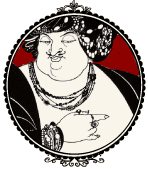

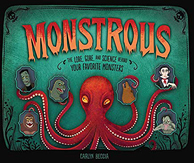
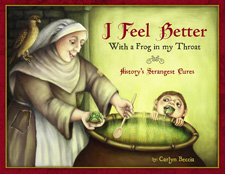
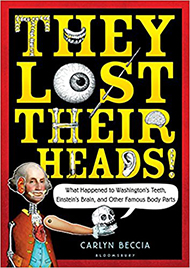


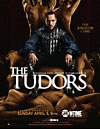

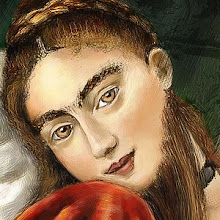
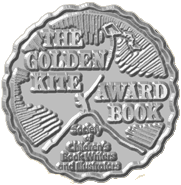
10 comments:
Lovely interview - I loved the questions posed and thoughtful answers. Thanks to both of you!
Great interview, thanks for upload it ;-)
Fantastic- Fantastic interview! I enjoyed this so much..I just can't get enough of both Charles and Louis. I've got to absolutely get this book!Totsally my kindf of read:)Thanks:)
That was a really lovely read! Not to mention a great pitch for her book. ;) I generally like my history fiction a little bit 'older' but this goes straight onto that to-buy list that I'm slowly working my way through!
LOL wow great interview! Susan, believe it or not I loved your romance novels written under Miranda Jarrett. You were one of my favorite authors! I love happy endings...and history. Amazing that one of my favorite authors is now a historical fiction writer. Can't wait to read your new books!
Great interview! I'm slowly working my way up the timeline (and east of England) so I have a title or two to keep in mind when I get there.
Sad that while the publishers want to dispense with the historical facts behind the stories, people who read historical fiction want to accept them as fact. (Which is their own fault for not doing the research, but interesting difference. I'm sure it all comes down to numbers).
Cool! Wicked! I haven't read any of her books yet but I was watching the blog when this came up! I bet her books are really good, if I find the French Mistress then I shall buy it. A contrast between two kings, but Napoleon was better than his predecessor...
How do you get autors to be interviewed? You are so lucky this is AMAZING...
There was a BBC mini series a couple of years ago about Charles (well, from memory it rather focused on his mistresses!) that was pretty entertaining. Rufus Sewell (of the amazing eyes) played Charles. Well worth catching!
Post a Comment